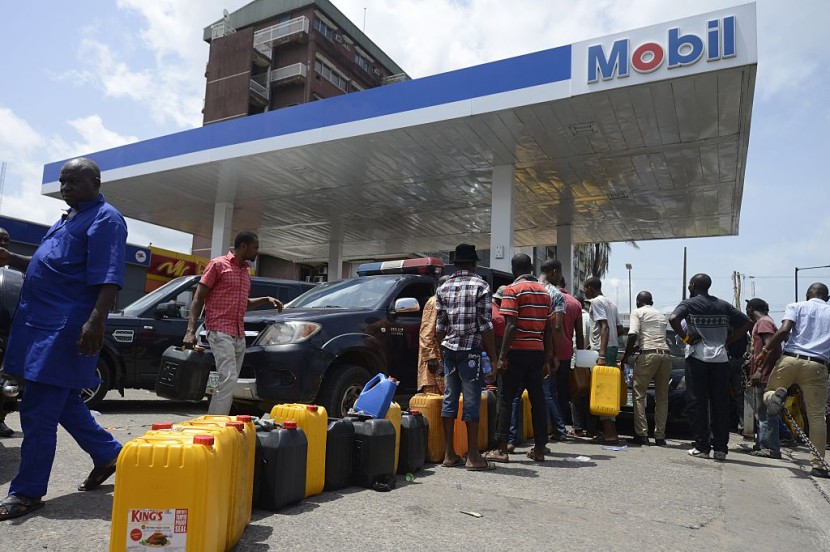
Nigeria's new president's plan to cut fuel subsidies has caused long lines at gas stations across Africa's most populous nation.
Bola Tinubu's first address as president unexpectedly announced that Nigeria's $10 billion petrol fuel subsidies were "gone," sparking the gasoline crisis.
Nigeria's Fuel Subsidy
The announcement, which differed from the scheduled remarks, prompted Nigerians to stock up before the subsidies were eliminated, causing huge lineups at petrol stations and immediate shortages.
On Wednesday, the state oil firm tripled fuel prices to N557 ($1.20) per liter, warning that prices will "continue to change to suit market dynamics." Fuel subsidies are still budgeted until June, Financial Times reported. A Mobil branch in Lekki, Lagos, had a 1km-long line of worried motorists. After four hours, cab driver Clement Agbor reported little movement.
Last year, the World Bank called Nigeria a "fiscal time bomb" because of subsidies. After inheriting a government with little income and high debt, Tinubu needs to save. Because of theft and poor infrastructure, the country's output has dropped to fewer than 1 million barrels per day.
Within hours of Tinubu's first speech, hundreds of people flocked to the streets in their cars or on foot with yellow jerrycans to acquire what they believed to be the last drops of petroleum sold at a government-set price.
Few were fortunate; many gas stations ceased sales entirely, while others unilaterally raised prices by more than 200 percent, causing pandemonium and artificial scarcity. It was too late to halt the panic by the time the president's staff clarified that the subsidy would only be eliminated at the end of June, following the budget of the outgoing administration.
Nigeria Government Corruption
According to BBC, commuters are stranded at bus stations, and the powerful labor union is now preparing to confront the new government. Nigeria cannot refine enough petroleum to meet domestic demand despite its energy wealth.
Four state-owned refineries are inoperable, requiring the country to import refined petroleum products, which are then sold at a government-set price. Since the 1970s, this has been the norm in Nigeria, and most residents have never paid the actual price of gasoline.
The government has already set aside $7 billion to subsidize petroleum for the first six months of this year, despite Tinubu's assertion that Nigeria can no longer do so due to declining revenues.
However, Nigerians' primary concern is corruption. Government agencies provide contradictory figures for the amount of imported gasoline, and shady merchants have been known to divert fuel to neighboring countries to charge higher prices. The proposal has been opposed by labor unions citing a lack of transparency and a history of corruption in government expenditure.
Even though Tinubu's election is being challenged in court, his administration is widely viewed as a continuation of Buhari's. However, Ayodele Oni, an energy partner at Lagos-based Bloomfield Law Practice, stated that despite being controversial, the government had acted appropriately.
He stated that the government must work to guarantee a consistent power supply and enhance rail and other modes of transportation to reduce the amount of money citizens spend on petroleum products. As per Aljazeera, the inflated cost of governance in Nigeria has also sparked concern among those who believe the government must modify its expenditure.
Related Article : Japan Prime Minister Fumio Kishida Orders Son To Resign After Public Outrage Over 'Inappropriate' Behavior








